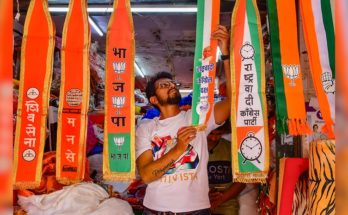A surfeit of organised misinformation – disinformation – is being used to hijack public opinion and is undermining the integrity of our public discourse, and by extension democracy in India and around the world. While there is a lot of rhetoric around misinformation from all sides, the issue is very complex and requires wide-ranging deliberations to evolve a path forward. The increasing dominance of digital platforms, dominated by multinationals driven by a profit motive, and the growing influence of “social media” on public discourse has posed a set of challenges that have proved to be extremely difficult to place within an appropriate regulatory framework.
In this context Future of India Foundation has released a report titled “Politics of Disinformation” on May 5, 2022 in Delhi. The report is in four parts: impact of misinformation in India (based on focus group discussions with youth in 8 states); overview of the current global research and thinking on misinformation; limits of current approach to misinformation; and way forward (recommendations).
To take this issue forward, a good idea to convene a series of deliberations on this issue with different stakeholder groups (academics, media, social media platforms, politicians etc) to build a common understanding and think of a way forward. These deliberations could be organised by a joint platform (tentatively called a “People’s Platform for Integrity of Public Discourse”) convened by a few organisations who work on issues of ethics and information, media, internet and democracy. The Future of India foundation will serve as the secretariat of this platform. Other constituents of this platform include the NCPRI (Aruna Roy, Nikhil Dey, Anjali Bhardwaj etc – RTI, transparency), Reporters Collective (Nitin Sethi etc, independent media), IFF (Apar Gupta etc, digital freedoms).
The platform was also launched with the report in Delhi’s India Habitat Center.
The report concretely lays out the conceptual framework to help understand the problem of contemporary disinformation (Section 3) in India today and makes two broad points: first, misinformation is political and any sustainable way forward must be located in the bipartisan political process for democratic legitimacy; second, that the current content-moderation approach to misinformation by platforms cannot stop the tide of misinformation unless supplemented by structural design changes.
Read the report here:




